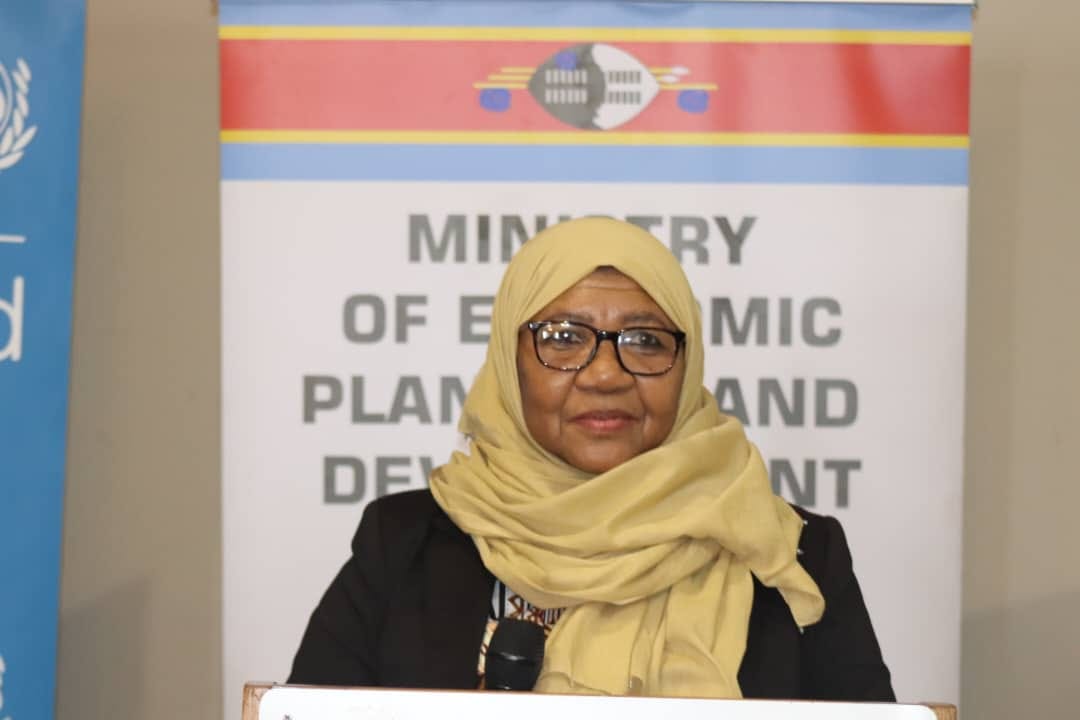By Ncaba Ntshakala
The persistent issue of child poverty in Eswatini has once again taken center stage, with new alarming statistics unveiled by UNICEF during the Ministry of Economic Planning and Development’s validation workshop focused on the draft Child Poverty Analysis report.
Amina Mohammed, UNICEF Eswatini Representative, emphasized the critical nature of the findings, particularly the shocking revelation that over 70% of children aged 15-17 years are exposed to hazardous conditions, primarily due to the use of unimproved cooking fuels.
This disturbing figure highlights the urgent need for comprehensive strategies to transition to safer cooking alternatives and improve overall living conditions for the nation’s youth.
ALSO READ: The TLC’s three years oxygen plant transforms healthcare
The workshop, held to validate the contents of the report and reach consensus on actionable measures to reduce child poverty, was marked by Mohammed’s passionate call for a multi-sectoral approach to address these pressing challenges.
She commended the Government of Eswatini for its progress in areas such as nutrition, child protection, and Information Communication Technology (ICT), while also stressing the need for intensified efforts in education, health, and water and sanitation.
The draft Child Poverty Analysis report, which Mohammed described as a culmination of over a year’s extensive work, paints a stark picture of the realities faced by children in Eswatini.
It reveals significant disparities in child poverty between urban and rural areas, with a staggering 51.8% of rural children living in multidimensional poverty compared to 23.1% in urban areas.
The report’s findings are based on data from the Multiple Indicator Cluster Survey (MICS) 2021-2022 and the Multiple Overlapping Deprivation Analysis (MODA) framework.

Mohammed highlighted the commendable efforts of the Ministry of Economic Planning and Development (MOEPD), which has led this initiative with support from UNICEF.
She praised the ministry’s strategic and collaborative leadership, particularly its formation of a robust multi-sectoral technical working team.
This team, comprising economists and planners from various ministries and agencies, has been instrumental in driving progress and propelling the analysis forward.
Despite the progress made, the report identifies several persistent challenges that require urgent government action.
The deprivation rate in education is particularly alarming, with nearly 96% of children aged 24-59 months lacking access to educational materials and early childhood programs.
This lack of access, compounded by the non-compulsory nature of education at this level, disproportionately affects the youngest and most vulnerable children.
ALSO READ: Breastfeeding is the best investment for every country
Health is another critical area of concern, with the exposure of over 70% of children aged 15-17 years to hazardous conditions being a major issue.
This exposure is largely due to the widespread use of unimproved cooking fuels, which poses significant risks to the health and well-being of these children.
Mohammed stressed the need for comprehensive strategies to transition to safer cooking alternatives and to improve vaccination coverage, particularly in rural areas where the impact is most severe.
Water and sanitation also remain major areas of deprivation, with about 37.7% of young children lacking access to clean water and 53.5% deprived of adequate sanitation facilities.
Mohammed pointed out that despite efforts to address these issues, the critical need for infrastructure development that is resilient to climate change remains a pressing challenge.
As the workshop continued, Mohammed reiterated UNICEF’s commitment to working alongside the multi-sectoral team to disseminate the findings of the report and to support the implementation of strategies that enhance child welfare.
She stressed the importance of today’s discussions in integrating the findings and recommendations into policy and decision-making, thereby improving child well-being across the country.
In conclusion, Mohammed expressed her gratitude to the Ministry of Economic Planning and Development for its exemplary leadership, as well as to all the ministries and institutions involved for their meaningful contributions and collaboration.
She emphasized that the final report, once validated, will be submitted to the cabinet and parliament for approval and endorsement,
which she said will mark a significant step forward in the fight against child poverty in Eswatini.


